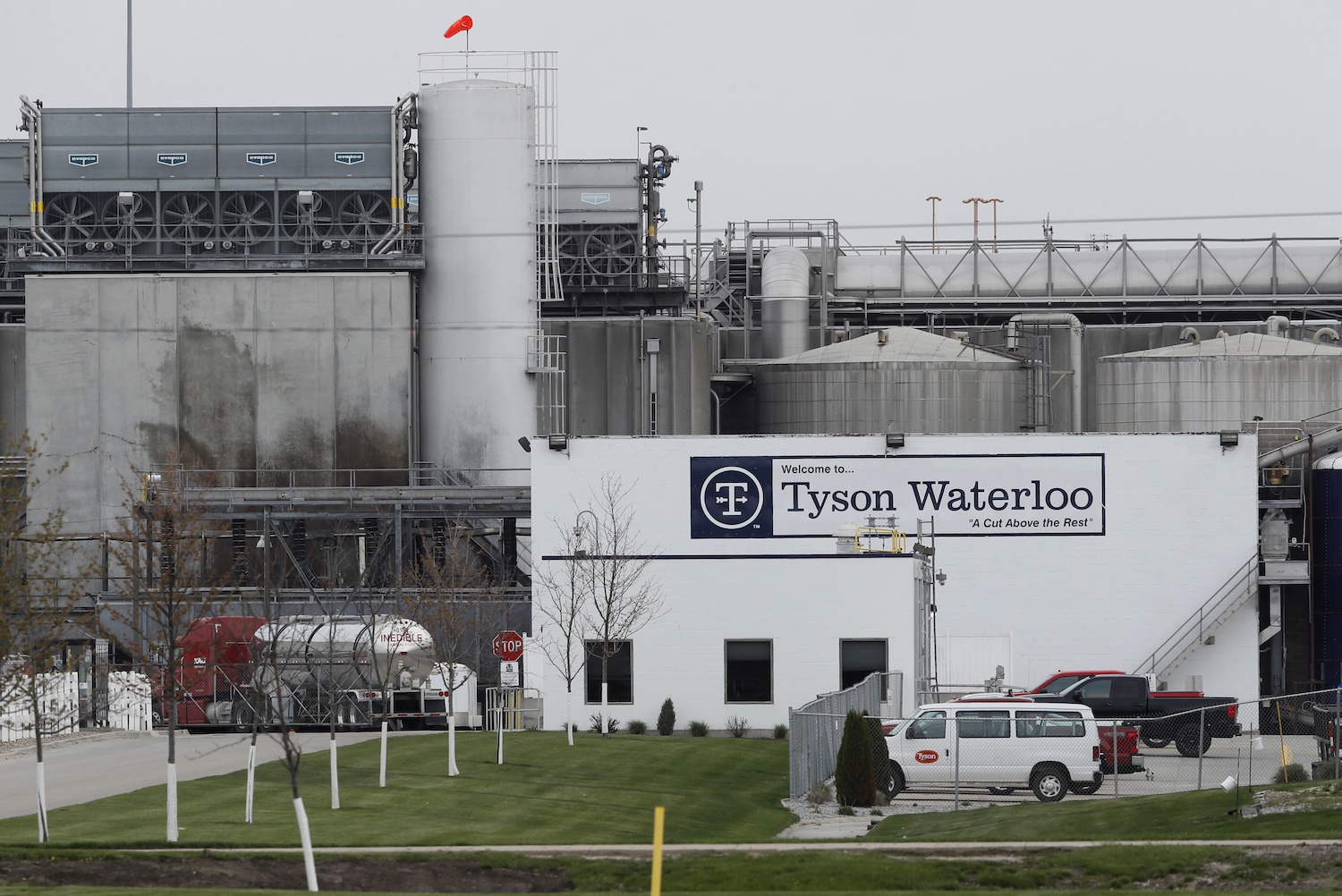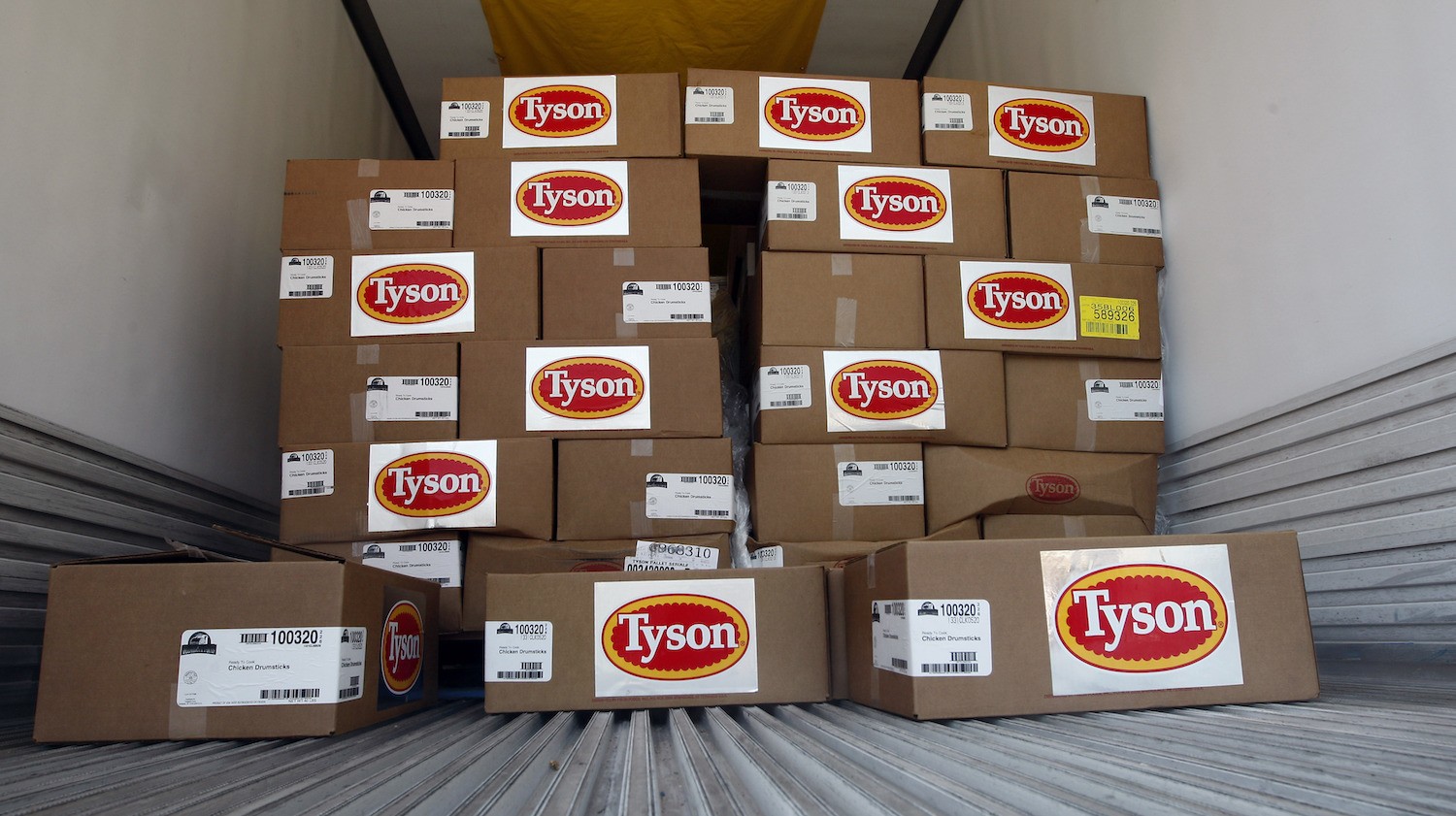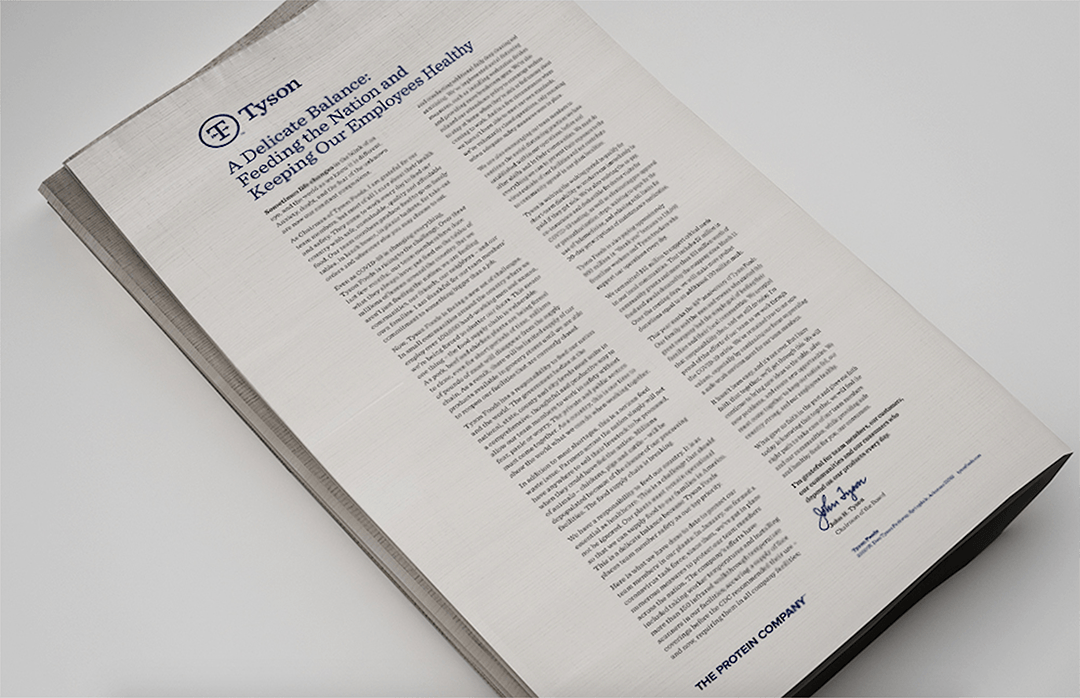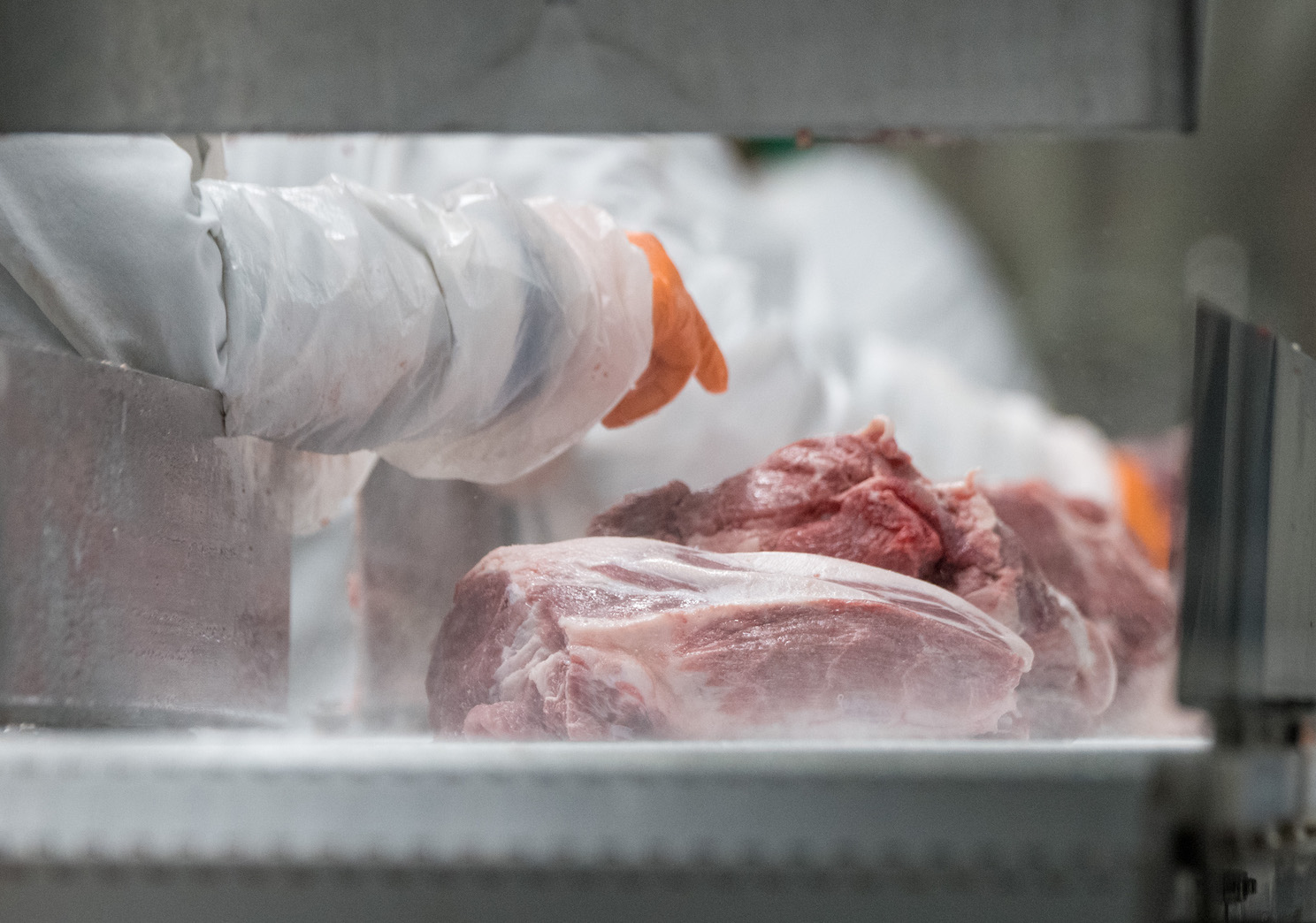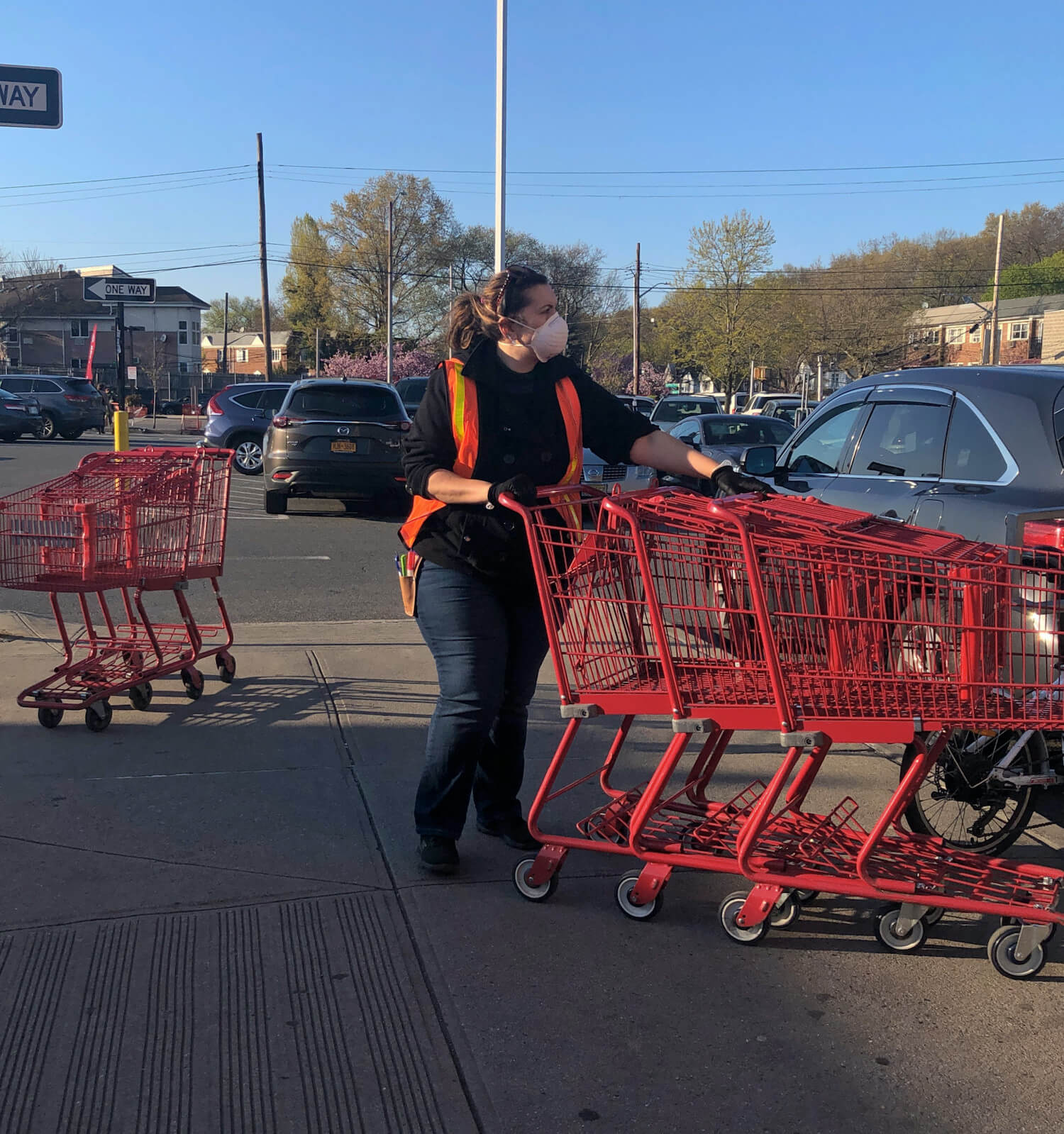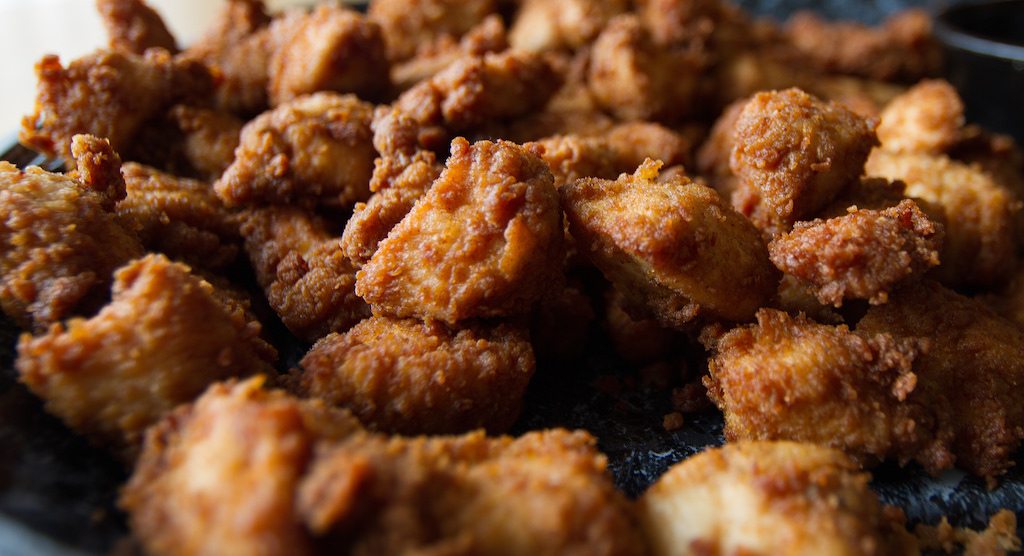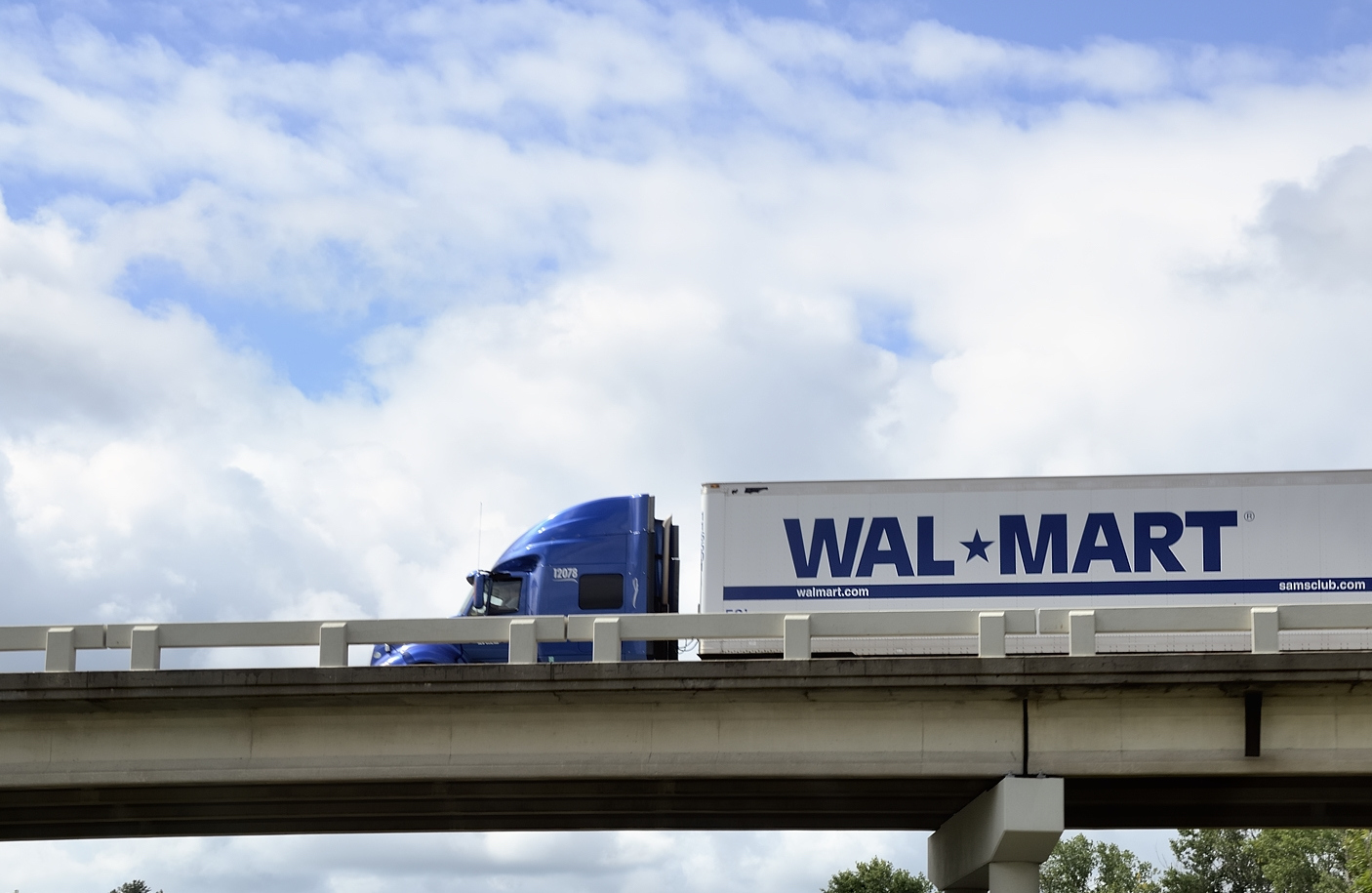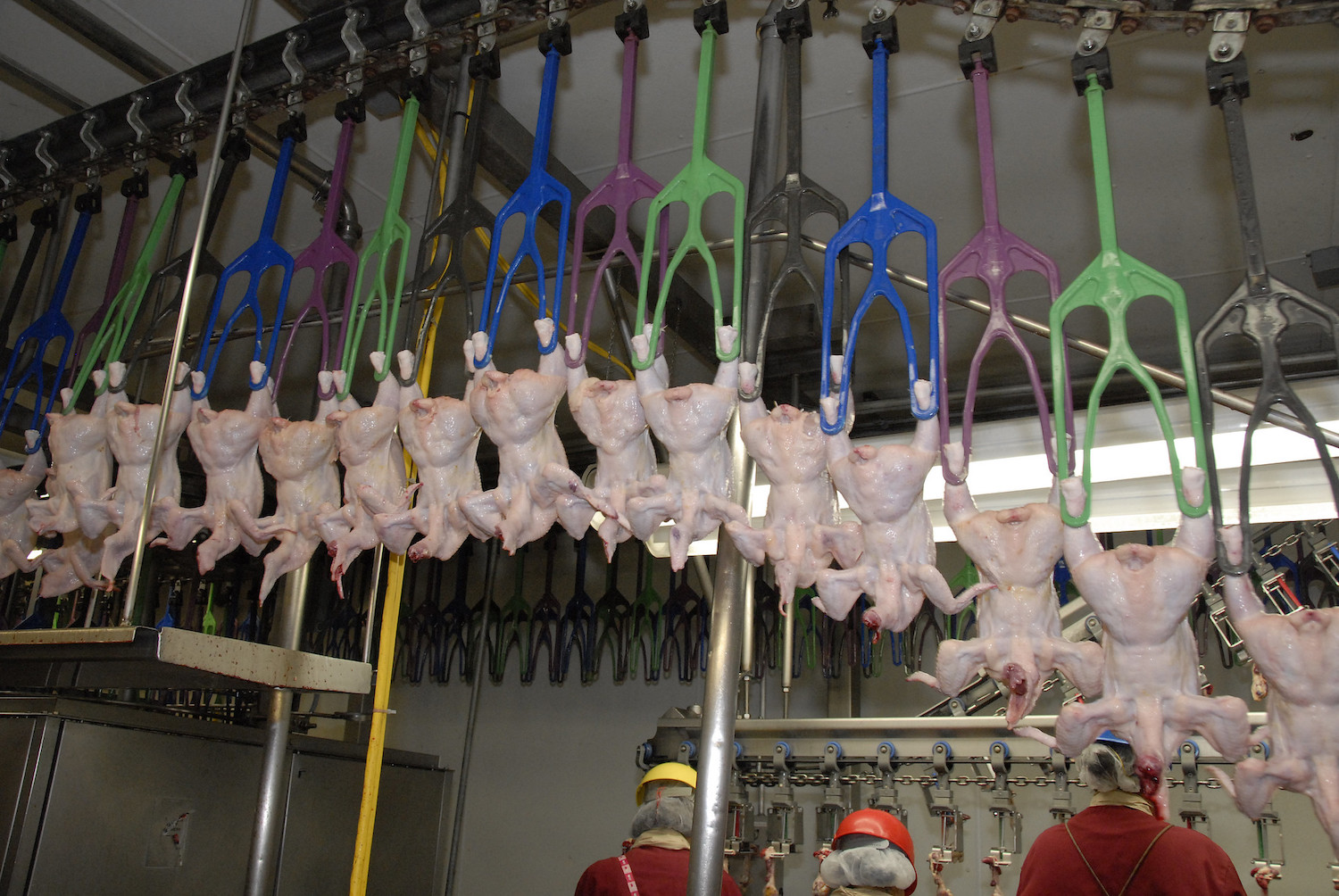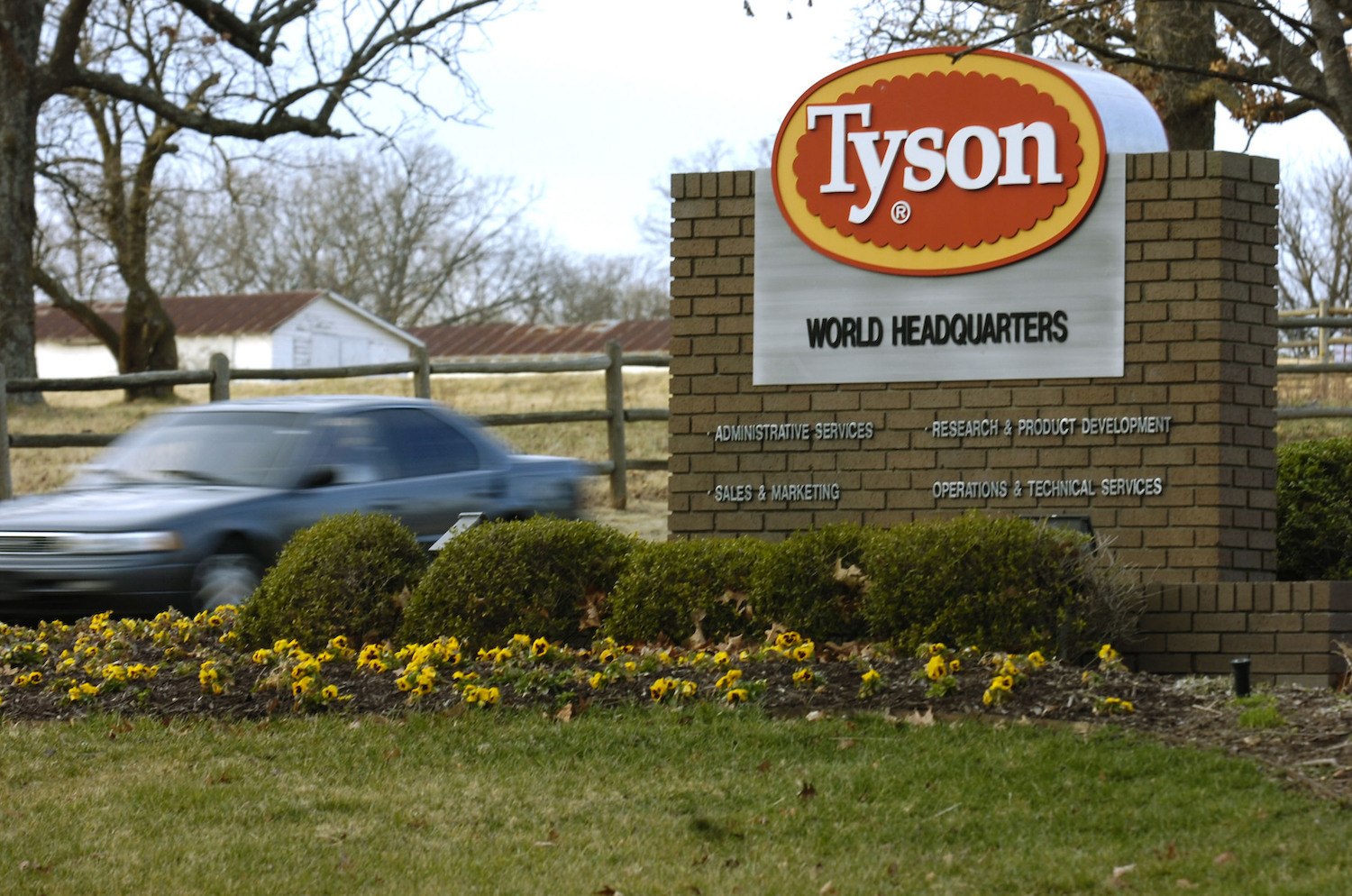
(AP Photo/April L. Brown, File)
Over 32,000 meatpacking workers have tested positive for Covid-19. Workers nationwide are calling on Tyson, one of America’s biggest meat companies, to increase protections.
In the wake of failed efforts to persuade the federal government that the country’s meatpacking plants aren’t safe for workers, activists are calling on Tyson Foods, and the most influential people in its orbit, to do more to protect its vulnerable employees from the spread of Covid-19.
This week, over 120 organizations signed on to a letter sent to the meatpacker’s 10 largest shareholders, urging them to demand that the company enact stricter safety measures in its plants, grant workers paid sick leave, and refrain from firing employees who miss shifts because they are afraid to return to work.
“The situation has never been more dire,” reads the letter, which was sent to T. Rowe Price, the Vanguard Group, and BlackRock, among others. “Tyson’s failure to protect its workforce from the spread of this deadly virus is a prime illustration of how little the company prioritizes the very employees it considers essential.”
“Tyson’s failure to protect its workforce from the spread of this deadly virus is a prime illustration of how little the company prioritizes the very employees it considers essential.”
The letter is step one in a week of actions led by Friends of the Earth, a Washington, D.C.-based environmental nonprofit, and Venceremos, a worker group in Arkansas, along with two other groups. On Tuesday, the coalition encouraged the public to call Arkansas Governor Asa Hutchinson, a Republican, to demand the closure of Tyson plants in the state where thousands of workers have already tested positive for the virus.
The group will also call Tyson directly to request that all plants slow down the speed at which processing lines run—a highly contentious industry standard that ensures maximum productivity and also makes social distancing impossible. Other necessary protections, the group says, include restructured work stations, requirements for personal protective equipment and daily testing, and public disclosure of all positive cases in its plants, some of which have become hotspots in rural communities.
Tyson, America’s second-largest meat company, has failed to halt the spread of Covid-19 in its plants. To date, more than 8,888 Tyson employees have tested positive for the virus, according to Investigate Midwest, which is more than double any other meatpacker, and at least 25 workers have died from the virus. Overall, at least 32,630 meatpacking workers have contracted the virus, according to Leah Douglas at the Food and Environment Reporting Network (FERN).
Last month, the families of three Tyson workers who died from Covid-19 sued the company for what they alleged was a failure to protect workers during an outbreak at its Waterloo, Iowa plant. The families accused managers of lying about the spread in its facility, failing to implement workplace safety measures, and allowing sick workers to stay on the line. Employees who made every shift for three months were promised $500 bonuses.
This campaign follows a lawsuit filed in May by the American Federation of Labor and Congress of Industrial Organizations to force the Occupational Safety and Health Administration (OSHA) to implement an emergency temporary standard to protect employees “exposed to grave danger.”
The standard would have required employers to conduct a hazard assessment in order to identify sources of potential exposure to the virus, and implement protocols to prevent transmission, such as social distancing and post-contact isolation. It would also have set enforceable standards around personal protective equipment and access to hand-washing facilities and hand sanitizer—all of which are currently left to employer discretion.
“Under the general duty clause, employers decide how to abate a cited hazard,” the petition reads. “In contrast, when OSHA issues a mandatory standard, employers have a clear notice of what worker protections are required, and OSHA can establish a violation by showing the standard applies and was not met.”
In April, Labor Secretary Eugene Scalia said that a mandatory safety standard is not needed because “employers are implementing measures to protect workers.”
In the absence of that standard, OSHA’s only mechanism to keep workplaces free from Covid-19 is a general duty clause to protect workers from “serious and recognized workplace hazards.” Labor experts say that clause is insufficient and hard to enforce. Despite thousands of positive cases, and workplace hotspots around the country, as of June, the agency had not yet issued any employer citations under the general duty clause. Public data show OSHA has closed the overwhelming majority of complaints.
In April, Labor Secretary Eugene Scalia said that a mandatory standard is not needed because “employers are implementing measures to protect workers” against the virus. Indeed, some are. Derek Burleson, a spokesman for Tyson Foods, said the Springdale, Arkansas-based company now screens all workers for symptoms before shifts, and designates monitors in plants to enforce social distancing in break rooms and locker rooms.
But those voluntary measures aren’t enough, said Magaly Licolli, co-founder of Venceremos. She said the company needs to enforce distancing on the processing line, and disputes Tyson’s stated commitment to “large-scale testing.”
“They are not testing workers in all the facilities,” Licolli said. “It’s time for Tyson to be responsible for its workers. It’s just outrageous that they keep letting workers die and getting sick without taking any responsibility.”

